It is common practice in business transactions to use the services of professional debt collectors in order to avoid costly and lengthy court proceedings. The legislator, meeting the needs of entrepreneurs, made it possible to claim from debtors the costs of such services, pursuant to Art. 10 sec. 1 and 2 of the Act of March 8, 2013 on counteracting excessive delays in commercial transactions (ie. Journal of Laws of 2021, item 424). In the first place, the creditor, pursuant to Art. 10 sec. 1 creditor is entitled to a flat rate in the amount of the equivalent of 40, 70 or 100 euro, respectively. The flat rate is due by operation of law and without any additional actions on the part of the creditor. Flat rate claims are not a major subject of controversy in the jurisprudence of courts.
However, ambiguities arise with claims regarding the costs of recovery in excess of the statutory flat rate, the return of which may be demanded by the creditor pursuant to Art. 10 sec. 2 of the above-mentioned act. The key wording in par. 2 is the phrase “in reasonable amount”. This means that the creditor must meet certain conditions in order to be able to recover the incurred expenses in excess of the flat rate. First of all, it is a claim for damages (for example, the Supreme Court in the resolution of December 11, 2015, file number III CZP 94/15, and the District Court in Warsaw in the judgment of February 24, 2017, file number XXIII Ga 111 / 17), with all the consequences, so the creditor must prove the damage suffered, secondly, to prove the debtor’s guilt and the causal link between the debtor’s fault and the damage suffered by the creditor. Therefore, it is necessary to prove not only the fact of incurring costs, but also the legitimacy, i.e. both the amount and the fact that the costs were justified in the circumstances of a given case. Compliance with the above requirements often causes many problems for creditors and their attorneys. In one of the last cases of this type, in which our law firm represented the debtor, the court dismissed the creditor’s claim for reimbursement of pre-litigation costs in excess of the flat rate. The court rightly drew attention to several issues which the creditor failed to prove. First of all, the amount of the debt collector’s remuneration may not be arbitrarily determined by the creditor together with the debt collection company in percentage terms, the circumstances of a given case should be included in the calculation of the remuneration, including the duration of the debt collector’s operation, the scope of activities undertaken, and the difficulty of the case. Subsequently, the creditor should prove not only the fact of payment as a result of the actions of the debt collector, but also what actions the debtor undertook and whether they resulted in the payment of the debt by the debtor. The court also confirmed that activities such as sending a request for payment or contacting by phone fall within the scope of activities for which a flat rate is due, but they cannot be considered as extraordinary activities justifying the award of remuneration exceeding the flat rate – reference number of the case – X GC 294/21 judgment of 1 July 2021 in the District Court Poznań Stare Miasto in Poznań, 10th Commercial Division.
In our practice we have had numerous cases, in which the courts refused to compensate creditors pursuant to Art. 10 sec. 2 of the Act of March 8, 2013 on counteracting excessive delays in commercial transactions, if these costs were not justified and were not properly demonstrated. It is also worth paying attention to another judgment, also issued by the Poznań Stare Miasto District Court, in which the Court indicated an additional circumstance limiting the possibility of seeking compensation above the lump sum, namely that the debt collector’s remuneration should not exceed half of the costs of a professional attorney’s remuneration for conducting a court case: “As a rule, it should be assumed that the costs of debt collection proceedings should be lower than the remuneration of a professional attorney for court proceedings. Initiating and conducting court proceedings requires a greater amount of work than taking standard actions in debt collection proceedings. In the case of a trial, apart from sending a request for payment or telephone contact with the debtor and a general substantive assessment of the merits of the request, it is also necessary to prepare a statement of claim. Of course, determining the amount of the reasonable costs of debt collection proceedings depends on the circumstances of a particular case. In the present case, the justified remuneration should amount to (…) PLN, that is about 50% of the costs of any possible court proceedings ”(reference number XII GC 1398/20). To sum up, debtors are not defenseless against unjustified claims related to pre-trial recovery costs. If the additional costs are not justified and duly proven, these claims can be effectively challenged.


